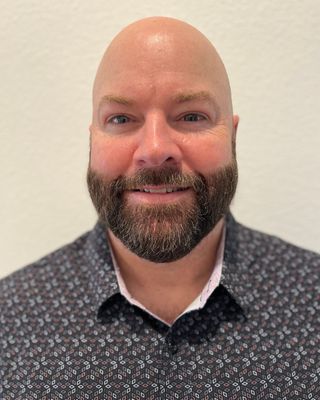Dual Diagnosis Treatment Centers in Nashville, Tennessee

Medically Reviewed
Medically Reviewed by Dr. Thompson
Last Updated on:
May 19, 2025
Table of Contents
- What is a dual diagnosis disorder?
- Signs and Symptoms of a Dual Diagnosis Disorder
- Why Are Dual Diagnosis Disorders So Common?
- Common Dual Diagnosis Disorders
- How Do We Determine Whether You Need Dual Diagnosis Treatment?
- How Is Dual Diagnosis Treated in Tennessee?
- Services Offered at Our Dual Diagnosis Treatment Center in Tennessee
Begin Dual Diagnosis Treatment in Nashville Today
Our trusted, compassionate experts have helped thousands.
At Arbor Wellness, our dual diagnosis treatment in Nashville, Tennessee provides comprehensive care for individuals struggling with both mental health disorders and substance use issues.
Our integrated and holistic approach addresses both conditions simultaneously, giving clients the best chance at lasting recovery and improved quality of life.
According to the Substance Abuse and Mental Health Services Administration (SAMHSA), approximately 9.2 million adults in the United States experience co-occurring disorders each year, highlighting the critical need for specialized treatment programs like ours.
Call us now at 629-217-2658 or verify your insurance.
What is a dual diagnosis disorder?
A dual diagnosis disorder, also known as co-occurring disorders, refers to the presence of both a mental health condition and a substance use disorder simultaneously.
These conditions often interact with and exacerbate one another, creating complex challenges that require specialized treatment approaches.
Common examples of dual diagnosis combinations include:
- Depression paired with alcohol use disorder
- Anxiety disorders alongside prescription drug dependence
- Bipolar disorder co-occurring with stimulant addiction
- PTSD combined with opioid use disorder
Understanding the interconnected nature of dual diagnosis disorders is crucial for effective treatment.
At Arbor Wellness, our dual diagnosis treatment programs in Nashville believes that treating only one disorder while ignoring the other often leads to incomplete recovery and higher relapse rates.
Our integrated treatment approach targets both conditions concurrently, providing clients with comprehensive care that addresses the full spectrum of their needs.
You are not alone. You deserve to get help.
Arbor Wellness is an industry leader in mental health treatment. Our team of top medical experts specialize in dual diagnosis treatment and are committed to ensuring that each patient is treated as an individual. Call us today, we’re available 24/7.
signs and symptoms of a dual diagnosis disorder
Recognizing when dual diagnosis treatment is necessary can be challenging as mental health symptoms often overlap and mask each other.
If you or a loved one are experiencing any combination of these warning signs, professional evaluation may be beneficial:
- Using substances to cope with emotional pain or mental health symptoms
- Experiencing withdrawal symptoms when attempting to stop substance use
- Having a family history of mental illness or addiction
- Noticing that mental health symptoms worsen during periods of sobriety
- Feeling that medications for mental health are less effective due to substance use
- Encountering legal, financial, or relationship problems related to substance use while struggling with mental health
Early intervention significantly improves outcomes for co-occurring disorders.
At Arbor Wellness, our compassionate team provides thorough assessments to determine the appropriate level of care for your unique situation.
What to Expect During Dual Diagnosis Treatment in Nashville
At Arbor Wellness, your dual diagnosis treatment journey often begins with medically supervised detox if needed—a critical first step to safely manage withdrawal symptoms while preparing your body and mind for deeper therapeutic work.
Our medical team provides 24/7 monitoring and comfort measures during this initial phase, ensuring your safety and comfort as your system clears of substances.
Following detox, you’ll transition into our comprehensive dual diagnosis program where you’ll receive personalized care combining psychiatric services, addiction counseling, and evidence-based therapies like Cognitive Behavioral Therapy (CBT) and Dialectical Behavioral Therapy (DBT).
Throughout your time with us, our Nashville-based clinical team works collaboratively to address both your mental health and substance use challenges simultaneously, providing the integrated support needed for sustainable recovery and improved overall wellbeing.
Common Dual Diagnosis Disorders
Dual diagnosis disorders can affect people from all backgrounds, ages, races, genders, and income brackets.
This condition also has a major negative impact on a person’s world, often leading to serious issues within their personal and professional lives. This is because mental illness, even when not further complicated by addiction, can cause major changes in the way that someone acts, thinks, and feels.
When it comes to co-occurring disorders, some mental health issues are more commonly experienced than others.
These can include:
How Do We Determine Whether You Need Dual Diagnosis Treatment?
Anytime someone enters our treatment program, we perform a detailed assessment of their condition and needs. This includes determining if they have a dual diagnosis. Because we are a dual diagnosis treatment center, the person can receive care for both their addiction and mental illness at the same time.
We will discuss any previous and current alcohol and drug usage. This includes what substances have been or are being used, for how long, and the amount typically taken. If it is determined the individual has a dual diagnosis, we implement a treatment plan to help them.
Our residential treatment center in Nashville offers the best option for those who need long-term care. Our facility provides a homelike environment conducive to relaxing and getting away from the daily stressors of life. Residential care provides the most intensive care available. Each person has access to support around the clock, which can be quite advantageous for those who need it.
Therapeutic Modalities for Dual Diagnosis Disorders
At Arbor Wellness, our licensed, and masters-level clinicians and clinical staff are expertly trained in treating co-occurring disorders, trauma, behavioral disorders and more.
We believe treatment shouldn’t be a one-size-fits all approach. We give each client multiple options so they can better explore what path best fits their needs:
- Red Light Therapy:This non-invasive photobiomodulation therapy uses specific wavelengths of light to reduce inflammation, improve mood regulation, and enhance cellular function, potentially easing both withdrawal symptoms and mental health challenges.
- Psychiatry: Our board-certified psychiatrists provide specialized medication management tailored to individuals with co-occurring disorders, carefully balancing treatments for both mental health conditions and addiction recovery needs.
- Biosound Therapy: By combining binaural beats, vibration, and music therapy in a specialized therapeutic chair, Biosound therapy helps reduce anxiety, improve emotional regulation, and enhance receptivity to other therapeutic interventions.
- Genetic Testing: Through advanced pharmacogenetic testing, we can identify how your unique genetic makeup affects your response to certain medications, allowing for more precise and effective prescription choices with fewer adverse effects.
- Holistic Therapy: Our holistic approaches, including mindfulness practices, nutrition counseling, and expressive arts, address the whole person—mind, body, and spirit—creating a comprehensive healing experience that complements traditional treatments.
- Alpha-Stim Treatment: This FDA-cleared cranial electrotherapy stimulation device delivers microcurrents to the brain that can effectively reduce anxiety, depression, and insomnia while also helping manage pain and cravings during recovery.
Begin Dual Diagnosis Treatment In Nashville, Tennessee Today
If you or someone you love suffers from both addiction and a mental illness, you may not know where to turn for help.
Arbor Wellness provides top-rated dual diagnosis treatment centers in Nashville that help you take that first step to a new, sober life.
We provide an in-depth assessment to understand your unique needs. From there, we work to design an individualized recovery plan to maximize your success.
Contact us today at 629-217-2658 or verify your insurance now. Get started living the good life you deserve.
More on Dual Diagnosis Disorders
People who Trust Arbor Wellness
Don’t trust our word, let others share their experience, strength, and hope.
If You are in need of immediate assistance...
Don’t hesitate to contact us immediately. In the case of a medical emergency please contact 911 or visit your local emergency department.
We Work With Most Major Insurance
Did you know most major health insurance plans with out-of-network benefits can help cover most of the costs associated with our program? Click below to find out your coverage and treatment options right now.













